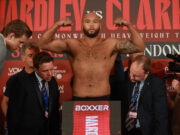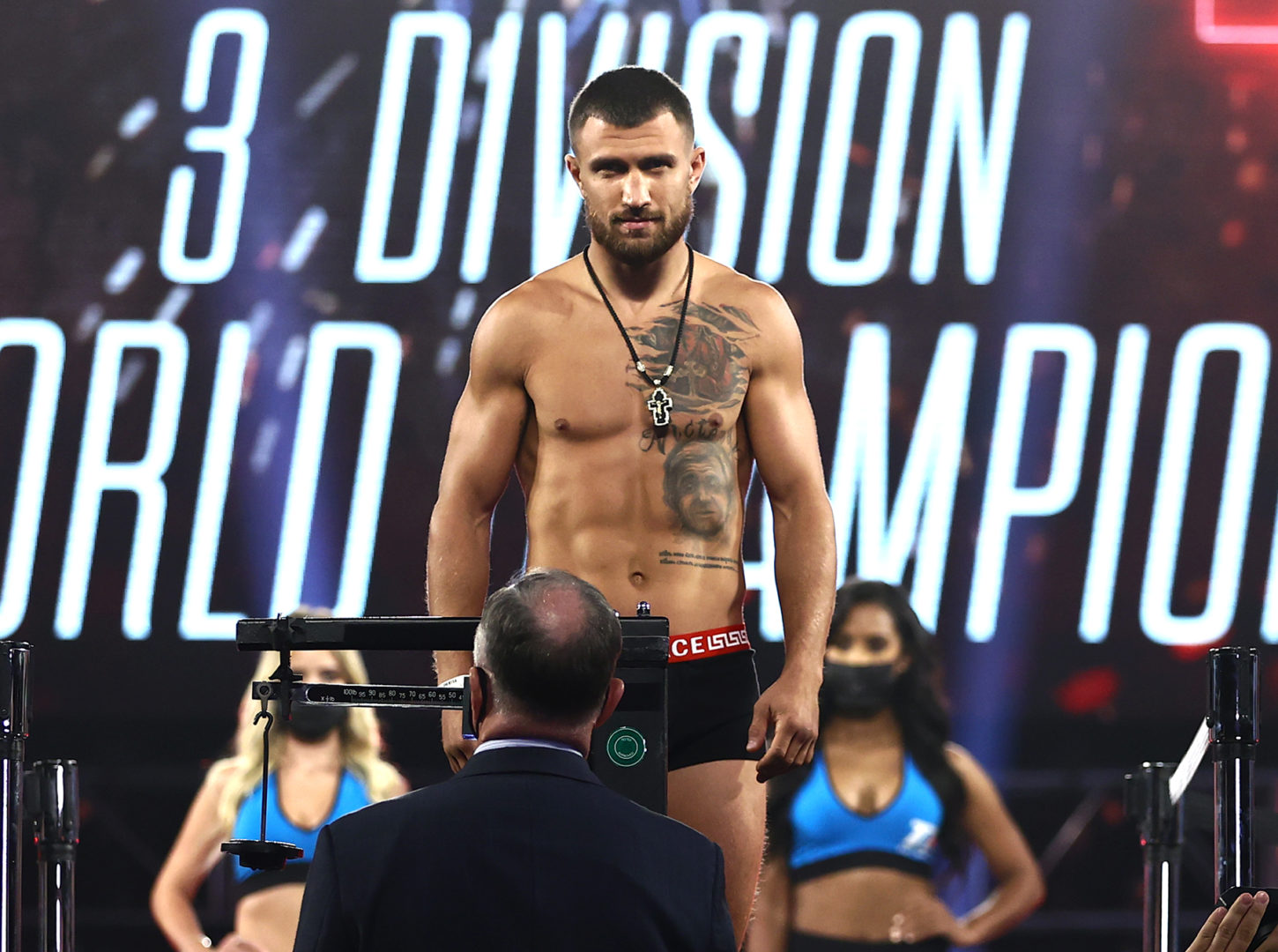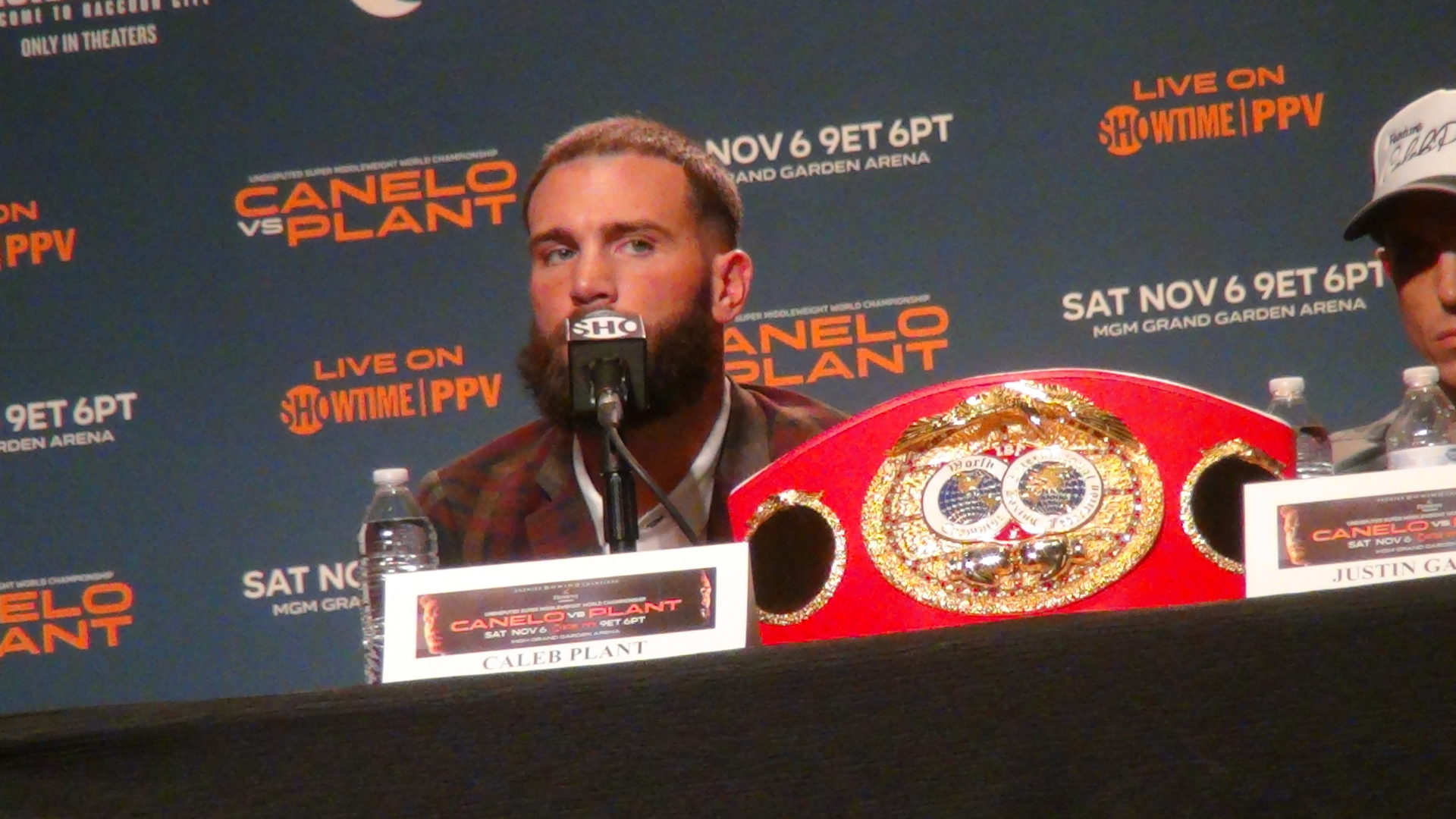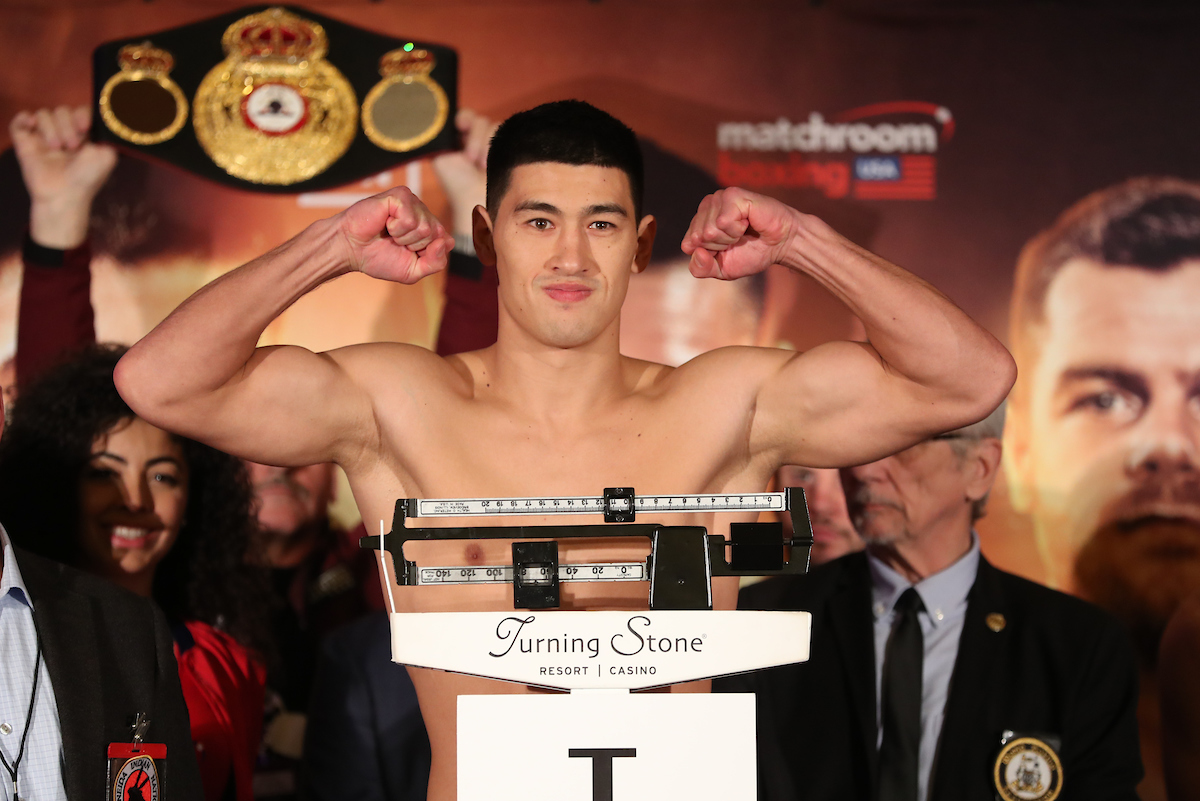
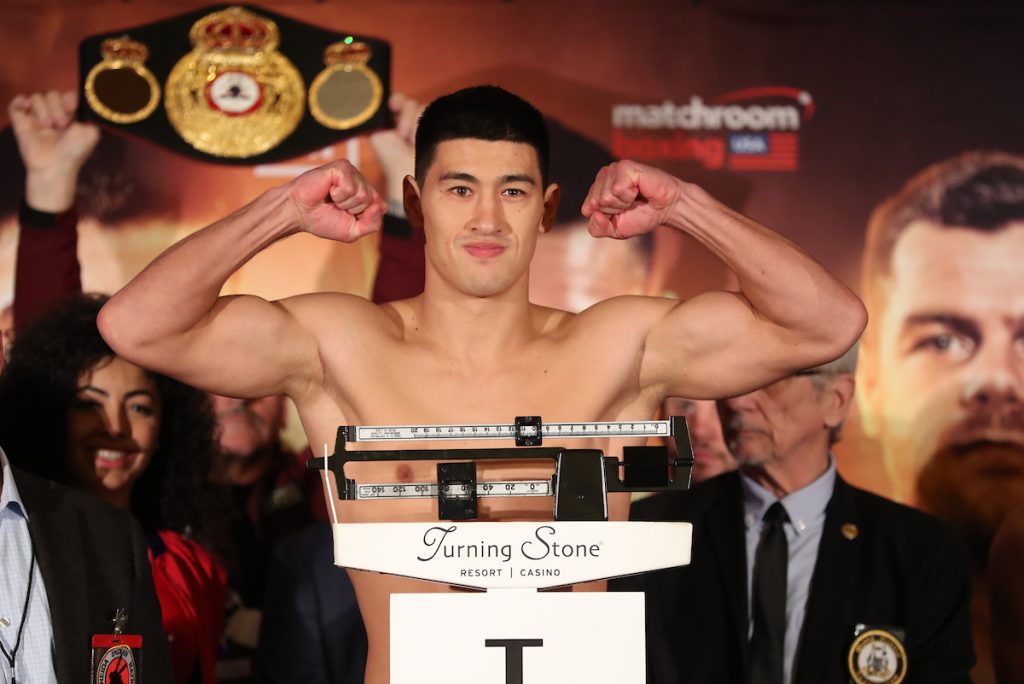
By Norm Frauenheim–
Dmitry Bivol doesn’t look like collateral damage. Not yet, anyway. But the controversy, if not the possibility, is there. Wladimir Klitschko made sure of it.
Bivol, a Russian light-heavyweight champion, should not be allowed to fight Canelo Alvarez, Klitschko told UK media in a condemnation of Russia and its ongoing attack of Ukraine, the former heavyweight champion’s homeland.
His blunt comments are not a surprise. He and brother Vitali, mayor of Kyiv and also a former heavyweight champ, are just a few of the prominent faces engaged in a desperate fight. Wladimir, soldier and statesman, wants a boycott of all things Russian.
Right now, that means Bivol. The light-heavyweight is a current face, a Russian symbol, of what the Klitschkos and their fellow Ukrainians believe the world should boycott.
Bivol’s deal to fight Canelo, the world’s wealthiest and best-known boxer, was formally announced last week. Bivol can’t escape the timing. Perhaps, it’s just coincidence. But the timing of the deal and Klitchko’s subsequent comments put him in the crosshairs.
In interviews with BBC 5 Live Radio and London tabloid The Mirror, Klitschko likened a ban on Bivol to another sanction on Russia.
“Every sanction – and it’s nothing against the personalities or athletes, it’s about the politics of Russia,’’ Klitschko told BBC. “Every Russian representative in this case needs to be sanctioned, because this way we show to Russia that the world is against his senseless war and there is no good in this war.”
In other words: Don’t buy Russian oil, don’t let Russians use ATMS, don’t let them eat Big Macs, sink the oligarch yachts and don’t watch Bivol.
For promoter Eddie Hearn and Canelo, the aforementioned watch – as in watch DAZN’s pay-per-view telecast on May 7 – looms as perhaps the real threat, some collateral damage to the biggest boxing promotion this year.
The deal is done. Business, as it always has in boxing, moves on, no matter what. Muhammad Ali-George Foreman, 1974’s fabled Rumble in the Jungle, happened in dictator Mobutu’s country, then Zaire. Ali-Joe Frazier 3, 1975’s Thrilla In Manila, happened under strongman Ferdinand Marcos’ rule.
More tyranny from Vladimir Putin probably won’t stop the fight. But it might make at least some people in the projected audience think twice about paying $79.98 for the PPV. Nothing about Putin War is pretty. Ugly is the only word for it. Wall-to-wall coverage on cable networks is full of tears, trauma, rubble and blood. An end to the carnage is not in sight.
The sports world is reacting. The NBA’s Utah Jazz just announced it will fund 32,000 nights of housing for Ukrainian refugees. Expect more of the same. Maybe, the Canelo-Bivol promotion can do something similar. But that won’t silence the controversy over Bivol’s appearance on a card that could earn him a reported $4 million, more than four times bigger than his biggest payday.
He seems to be a nice guy. He’s quiet. He was born in Kyrgyzstan. He has lived in Russia most of his life. He has family in Saint Petersburg. He tried to say all the right things last week at the newser in San Diego. He said he has friends in Ukraine. He said he has friends in Russia.
“I wish everyone peace and only the best,’’ Bivol said. “It’s really sad for me. Every day, I wake up and read the news. I hope this ends soon.”
It’s a dilemma, one that Bivol didn’t seek. But there’s no hoping it just goes away. There’s also no way to pacify both sides. The Klitschko brothers stand as a lesson and also a warning, at least to the Russians. They won’t quit.
It was hard not to notice Thursday that the Ukrainians destroyed a Russian tank column, a reported regiment, in Brovary, a suburban town about 10 miles east of Kyiv. It’s the same town where Wladimir Klitschko first learned how to box at Brovary Olympic Reserve School in the late 1980s.
Those burning tanks are a warning.
So, too, are Klitschko’s words.
So, too, are pound-for-pound contenders Vasiliy Lomachenko and Oleksandr Usyk, both symbols of Ukraine’s inexhaustible will to fight. Lomachenko and Usyk are still in the middle of brilliant ring careers. Lomachenko was projected to fight unified lightweight champion George Kambosos in Australia. Usyk was working toward a rematch of his heavyweight stunner over Anthony Joshua.
Lomachenko was training in the Greek islands. Usyk was in the UK. Then, Putin attacked. Their lives changed. But their priorities did not. They enlisted in the fight to save their homeland.
It’ll be impossible not to think about their real fight while watching Bivol in a prize fight.


